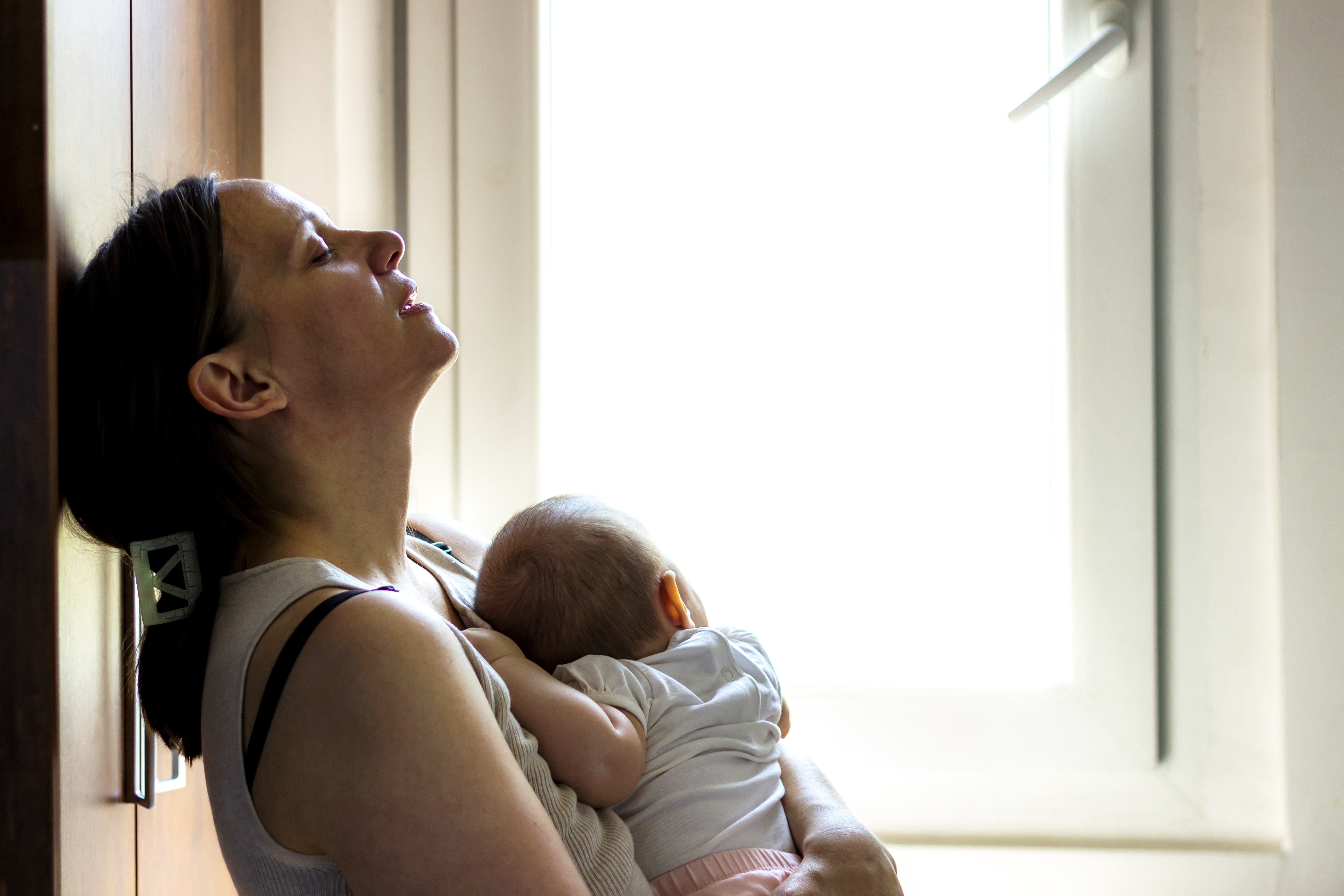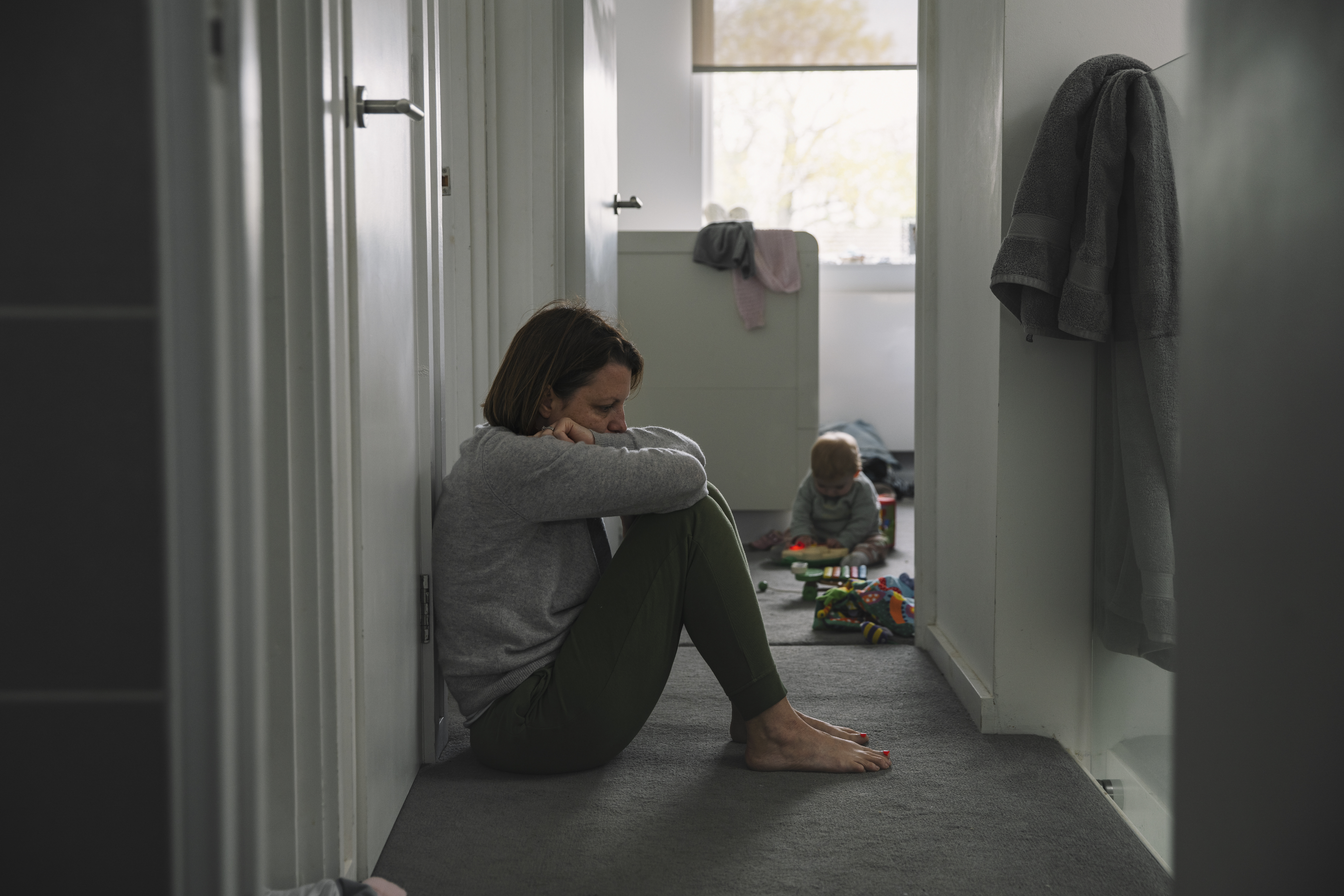Yes, Men Do Get Postpartum Depression

Clinically reviewed by Jonathan Martin, MD
Postpartum depression causes extreme sadness and despair following the birth of a baby. It’s commonly associated with new mothers, but studies have identified postpartum depression in men. In fact, approximately 1 in 10 men develop what’s known as male postpartum depression or paternal postpartum depression (PPD).
How does PPD affect men, and what can you do to help yourself or a friend? This article answers those questions.
What Does Paternal Postpartum Depression Look Like?
Paternal postpartum depression, by definition, affects men following the birth of their child. Its symptoms, which tend to peak later than a woman's, include anger, violent behavior, impulsive or risk-taking behavior, and irritability. New fathers can also experience headaches, digestive problems, muscle aches, and poor concentration.
In addition, they may withdraw from relationships and have suicidal thoughts. Consequently, it’s crucial to identify paternal postpartum depression and get help resolving it.
Why Do Men Get Paternal Postpartum Depression?
Several factors can contribute to depression in fathers. They include:
- Hormonal changes. Studies have found that fathers experience hormone changes during and after their partner’s pregnancy, including a decrease in testosterone levels.
- Feeling disconnected. Mothers and babies share a very close bond, which can cause fathers to feel like “outsiders.” This feeling can be amplified by a mom’s desire to meet all of the baby’s needs.
- Sleep deprivation. Lack of sleep can significantly impact anyone’s mental and emotional well-being, and virtually all new parents experience it.
- Mom’s postpartum depression. It’s common for a man’s emotional state to mimic his partner’s, including after childbirth. So, if mom experiences postpartum depression, it’s more likely that dad will.
- Feeling overwhelmed by parenthood. Being a new parent (or becoming a parent again) requires unique coping skills. Fathers may experience male postpartum depression as new routines are being developed.
How Do I Deal with Paternal Postpartum Depression?
Fathers experiencing paternal depression may dismiss their symptoms or feel uncomfortable addressing them. But it’s essential to take action.
You may be able to reduce your PPD symptoms by doing the following:
- Exercise regularly. You may not feel like you have time for exercise if you’re trying to balance work and home responsibilities, but it’s important to get physical activity regularly. You might not be able to do a long workout, but any time exercising can be beneficial.
- Eat a healthy diet. It’s common to rely on fast food and snacks to get you through busy days after your baby is born, but you need adequate nutrition to support your physical and emotional well-being.
- Talk about your feelings. You might believe you have to “be strong” for your partner, but discussing your feelings isn’t a sign of weakness. It shows you’ve identified a problem and are taking steps to resolve it. That’s a much more effective way to support your partner and new baby.
- Rest when you can. Sleep may be hard to get, but do your best to find time for it.
- Recognize and avoid reckless behaviors. Paternal postpartum depression may cause you to seek release through risky actions, but those behaviors won’t improve your condition and can make matters worse.
How Do I Help Someone Experiencing Paternal Postpartum Depression?
Depression in fathers is a serious condition. You can help someone experiencing PPD in various ways. One is to invite them to talk with you about their symptoms. Another is to encourage them to seek help if they need it.
You can also offer to help with child care to give them and their partner a break. Or you might arrange for someone else to lend a hand while you take the father (or both parents) out for a healthy, stress-relieving activity.
Get Help with Paternal Postpartum Depression
Paternal postpartum depression is a real condition that can cause significant mental and emotional distress for fathers and adversely affect their relationships with their partner and child. Fortunately, there are ways to treat it — from counseling and behavioral changes to medication.
If you or someone you know is experiencing male postpartum depression, you should learn more about behavioral health services at Baptist Health. Every father deserves to enjoy the life-changing experience of welcoming a baby, and we can help!



